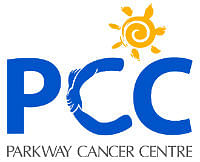
You've heard of the term superfoods before, but what does it really mean?
According to Google, it is a "nutrient-rich food considered to be especially beneficial for health and well-being". But for others, it's merely a marketing term.
The European Union (EU) has gone as far as to ban the use of the word on packaging. Even so, that hasn't stopped countless food brands from funding academics to research the health benefits of their products.
In truth, everyday ingredients can be counted as superfoods. Parkway Cancer Centre's CanHOPE Senior Dietitian Fahma Sunarja explains that superfoods are labelled as such "because of their antioxidant properties, or phytonutrients/phytochemicals that may act like antioxidants and these antioxidants are thought to be fighting free radicals that may be cancer causing".
Items like yogurt, eggs, nuts, quinoa, broccoli and berries can be considered superfoods because of their multi-tasking nutritional properties. But the real question is: Do these foods really help keep cancer at bay?
Science says "no"
Ms Sunarja maintains that there has been no scientific evidence that the consumption of superfoods can prevent cancer. Although she doesn't deny the goodness that comes from eating such foods, she says no single superfood will have the power to eradicate or prevent cancer entirely.
"A variety of foods is necessary for a person to obtain all nutrients, both macro and micro, in order for the body to function optimally. Good advice would be to have a balanced and varied diet and to include superfoods as part of the diet," she says.
While some laboratory evidence suggests that superfoods have positive effects on health, a person must also take into account that lab studies are usually performed with a purified ingredient from a particular food.
What this means is that scientists test a purified version of a particular chemical rather than the fresh fruit or food itself.
It would be prudent to assume that an isolated chemical would behave very differently in a test tube than in a person's intestines.
Cancer is a complex disease and affects each individual differently and because of this, it would be a gross oversimplification to assume that any one type of food would have the power to eradicate the disease entirely.
Ms Sunarja agrees: "No one food can have such an impact. It's usually not just a food but a whole diet or a person's eating habits that will affect overall health and hence reduce or increase the risk of developing cancer."
A well-balanced diet is the key
Yes, it's been proven that certain types of food are particularly beneficial for humans, as they provide an exceptional amount of nutrients that enables the body to fight toxins, including cancer-causing free radicals. But a single food definitely cannot substitute a well-balanced diet.
So, while the term superfood has been proven to be a marketing tool with little scientific basis to it, we can rest assured that eating a good variety of these nutrient - rich foods, coupled with a diet of other types of food - can greatly reduce the risk of cancer.
The prevention of cancer or any disease, in fact, relies largely on a person's lifestyle habits. This means that what you eat on a daily basis, how much you exercise, whether you smoke or drink, or spend lots of time in the sun, can determine how likely you are to develop cancer.
Our risk is a combination of our genes, our environment, and aspects of our lives, many of which we can control.
At least four out of 10 people can prevent cancer by simply making lifestyle changes.

